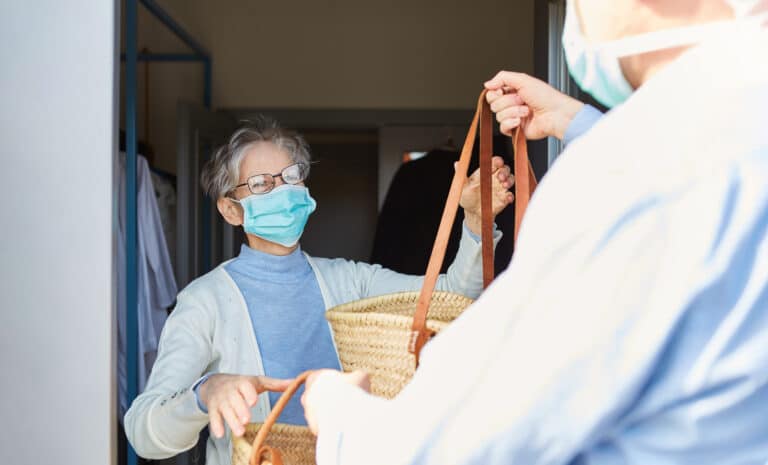As of June 4th, the U.S. has seen over 1.8 million cases of COVID-19. It’s a serious virus that you cannot take lightly. Several states have ended or lessened restrictions, but that doesn’t mean the disease is fading away. It’s still prevalent.
If you may have been exposed to the virus or have it, you cannot go see your parents. Family caregivers may feel torn between being there for their parents and staying home. Staying home is safest for everyone.
How COVID-19 Spreads
You should know at this point that COVID-19 is transmitted from one person to another through saliva and mucus. Those body fluids may be spread through a sneeze, a cough, or by someone touching their mouth or nose before touching something else.
The CDC recommends staying at least six feet from others who could have the virus. That lowers the risk of inhaling someone’s saliva when they talk, sneeze, or cough. You may think you’ll know if someone else has COVID-19, but there have been cases of people with the virus showing no symptoms. You could be next to someone who doesn’t appear to have the virus and end up contracting it through them.
You may not be aware you’ve contracted the virus. Days can pass before symptoms appear. In that time, you can be contagious and spread the virus to everyone you are near. It could be your child, your spouse, or your parents. This is why face masks, social distancing, and staying at home are so important.
What Are the Symptoms?
Many experts believe that the first noticeable symptom of COVID-19 is the loss of taste or smell. A cough, fever, and difficulty breathing are also common. Some people experience those symptoms and some don’t.
Some people have mild flu-like symptoms like body/muscle aches and lethargy. Some develop diarrhea, nausea, vomiting, and headaches. Congestion and a runny nose can also appear. Others never experience symptoms at all. Even if there are no symptoms, that doesn’t mean the person isn’t contagious.
What If Your Parents Need You?
What if your parents need you? They depend on you for help with household tasks like housekeeping, laundry, and meals. You can’t just stop going to their house.
If there is a chance you have been around anyone who’s been exposed to COVID-19, stay home. Ask another family member to take your place for now. You can look into having groceries delivered. You can arrange a mail order or curbside pick up for prescriptions.
Senior care services are also helpful during the pandemic. Let caregivers take over and help your parents while you’re at home ensuring you do not have the virus or have fully recovered before you return to your duties as a family caregiver. Call a senior care agency to make arrangements.
If you or an aging loved-one are considering hiring Elderly Care in San Francisco, CA, contact the friendly staff at Home Care Professionals today.
Call (866)-940-4855
Sources:
CDC.gov
- Seven Indicators That Your Loved One Could Benefit from 24-Hour Home Care - April 18, 2025
- Creating Visual Cues to Support Independence for Seniors With Alzheimer’s - April 9, 2025
- Protecting Your Senior From Distracted Driving Mistakes - April 2, 2025




